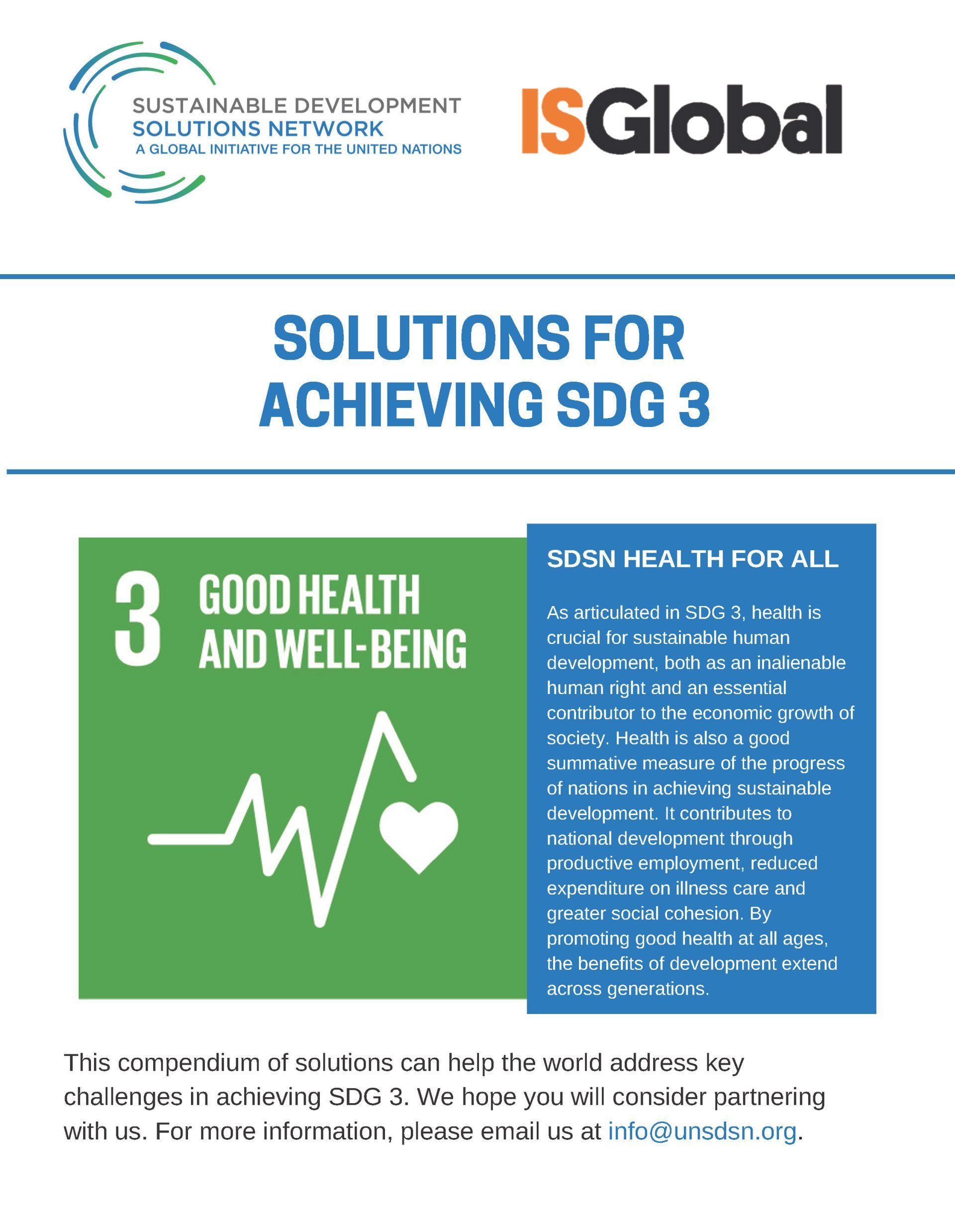Health for All
Filters

12 May, 2022
The COVID-19 pandemic has shown us that the world is capable of acting with urgency to tackle crises on a global scale. It has demonstrated that the focused and coordinated efforts of global experts can lead to rapid and radical changes to address an emerging threat – for example in global mobility, ways of working, and medical advances. It also highlighted the crucial importance of tackling misinformation, demonstrated that individual behaviors can benefit society collectively, and shown how structural inequalities predetermine who is most affected and how - all issues that have clear parallels to the climate crisis. This white paper explores the development of strategies through an interdisciplinary approach to motivate behaviour change, tackle misinformation and address inequality in times of crises.
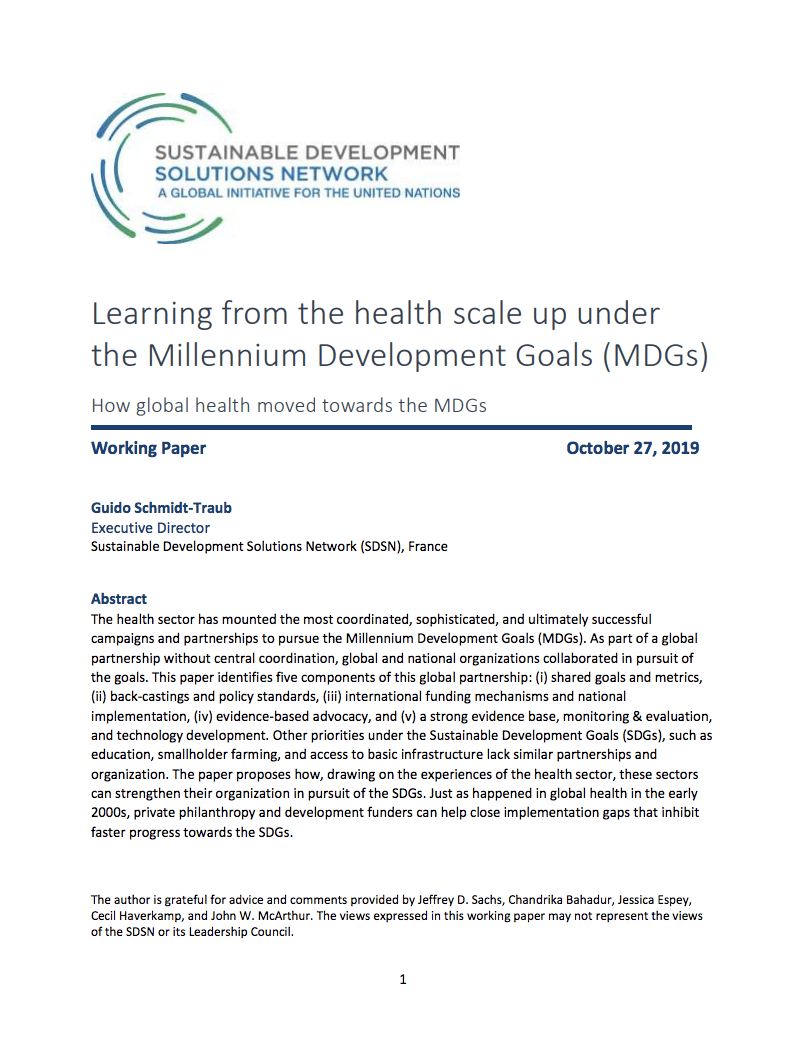
By jay
•
31 Oct, 2019
Abstract The health sector has mounted the most coordinated, sophisticated, and ultimately successful campaigns and partnerships to pursue the Millennium Development Goals (MDGs). As part of a global partnership without central coordination, global and national organizations collaborated in pursuit of the goals. This paper identifies five components of this global partnership: (i) shared goals and metrics, (ii) back-castings and policy standards, (iii) international funding mechanisms and national implementation, (iv) evidence-based advocacy, and (v) a strong evidence base, monitoring & evaluation, and technology development. Other priorities under the Sustainable Development Goals (SDGs), such as education, smallholder farming, and access to basic infrastructure lack similar partnerships and organization. The paper proposes how, drawing on the experiences of the health sector, these sectors can strengthen their organization in pursuit of the SDGs. Just as happened in global health in the early 2000s, private philanthropy and development funders can help close implementation gaps that inhibit faster progress towards the SDGs.
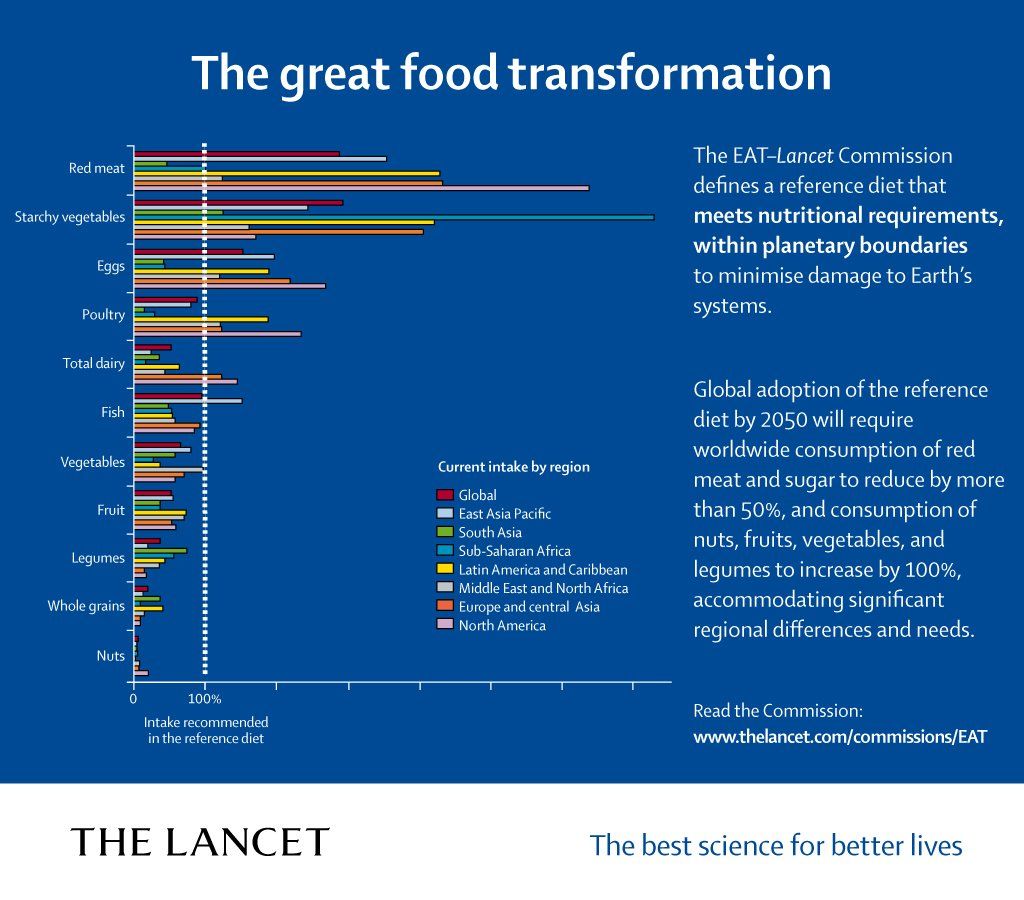
By jay
•
17 Jan, 2019
Food in the Anthropocene: the EAT–Lancet Commission on healthy diets from sustainable food systems counts several SDSN affiliates among its authors: Jessica Fanzo, a member of the Thematic Network on Sustainable Agriculture and Food Systems , Srinath Reddy and Walter Willett, members of the Thematic Network on Health for All , and Johan Rockstrom, member of the Leadership Council . The report addresses the need to feed a growing global population a healthy diet while also defining sustainable food systems that will minimize damage to our planet. The Commission quantitively describes a universal healthy reference diet, based on an increase in consumption of healthy foods (such as vegetables, fruits, whole grains, legumes, and nuts), and a decrease in consumption of unhealthy foods (such as red meat, sugar, and refined grains) that would provide major health benefits, and also increase the likelihood of attainment of the Sustainable Development Goals. This is set against the backdrop of defined scientific boundaries that would ensure a safe operating space within six Earth systems, towards sustaining a healthy planet.
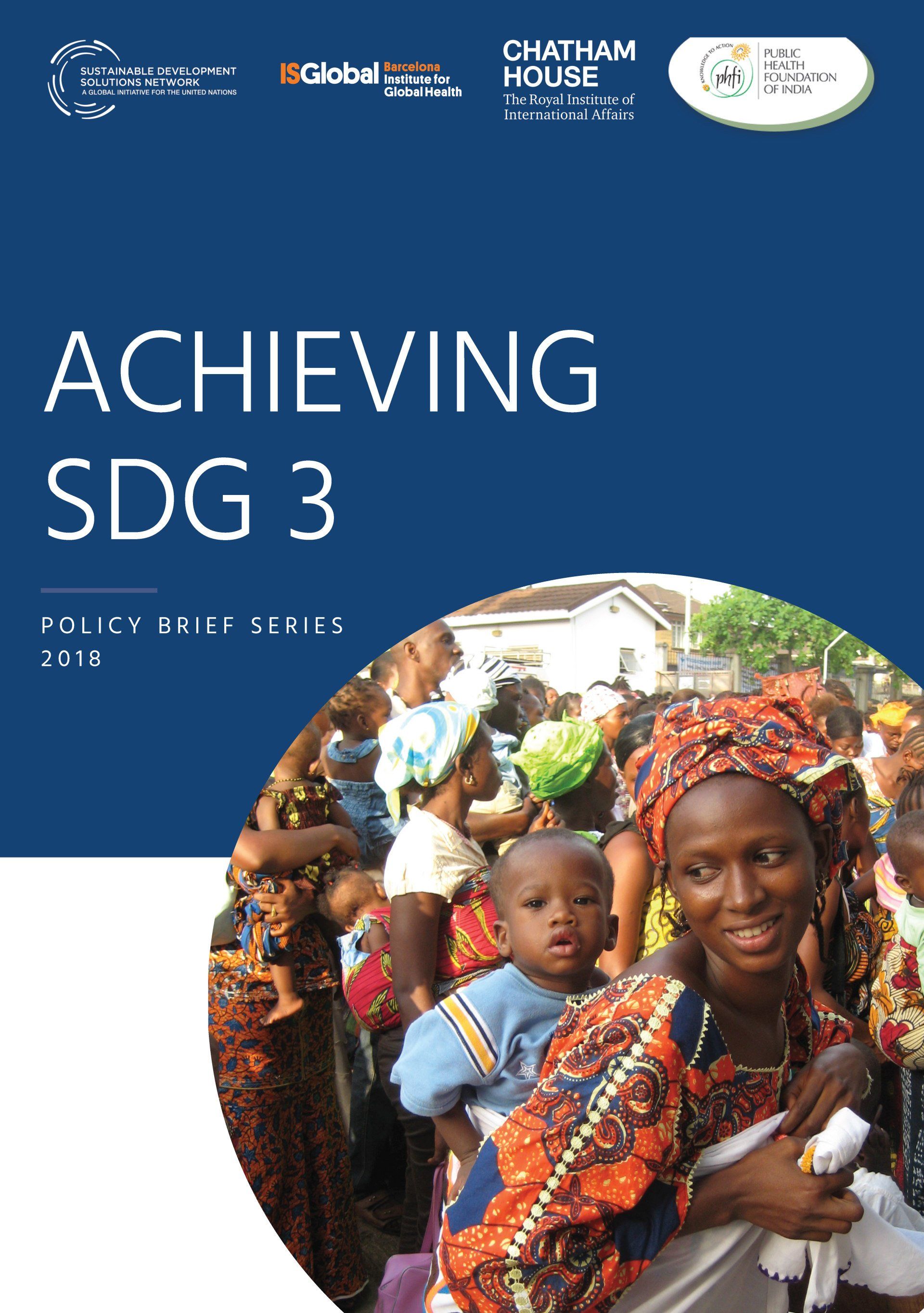
By jay
•
29 Oct, 2018
With this series of policy briefs, available in English and Español, the Sustainable Development Solutions Network’s “Health for All” thematic group would like to add to the analysis of achievements and gaps still present on the road towards UHC and a comprehensive PHC implementation. PHC, as conceived by the Alma Ata Conference, refers to the principles of equity, community participation, and intersectoral action. In this regard, three of these policy briefs point to key topics such as public financing mechanisms, a workforce of professionalized community health workers, and the promise of new technology to increase access to and quality of care. These are all important tools to make primary care high-quality, accessible, continued, comprehensive, and coordinated. The other two briefs analyze the role of a “Health in All Policies” approach as a way to implement a multi-stakeholder, coherent, and intersectoral approach; and a case study of cities as an example of how to include health in a different sector’s policies, such as urban planning. We hope this compilation of evidence and policy proposals will contribute to the comprehensive fulfillment of Agenda 2030 and its aspiration of a world that truly ensures healthy lives and promotes well-being for all at all ages.

By jay
•
29 Oct, 2018
Con esta serie de informes sobre políticas, en ingles y español, el grupo temático “Salud para Todos” de la Red de Soluciones para un Desarrollo Sostenible (Sustainable Solutions Network’s, SDSN por sus siglas en inglés) quiere hacer su aportación al análisis de los logros y de las lagunas que siguen existiendo en el camino hacia la CSU y hacia una implementación integral de la APS. La APS, según fue concebida en la Conferen-cia de Alma Alta, hace referencia a los principios de equidad, de participación comunitaria y de acción intersectorial. En este sentido, tres de los informes tratan temas clave como los mecanismos de financiación pública, una fuerza de trabajo de agentes de salud comunita-rios profesionalizados y la promesa de las nuevas tecnologías para aumentar el acceso a la atención y la calidad de ésta. Todas ellas son herramientas importantes para hacer que la atención de salud primaria sea de alta calidad, accesible, continuada, integral y coordinada. Los otros dos informes analizan el papel de la estrategia “La salud en todas las políticas” como forma de implementar un enfoque multi-actor, coherente e intersectorial, y un estu-dio de caso sobre como las ciudades pueden ser un ejemplo de cómo incluir la salud en las políticas de un sector distinto, como el de la planificación urbanística. Esperamos que esta compilación de resultados y de propuestas para políticas contribuya a la realización integral de la Agenda 2030 y de su ambición de lograr un mundo que verdaderamente garantice una vida saludable y promue-va el bienestar para todos a todas las edades.
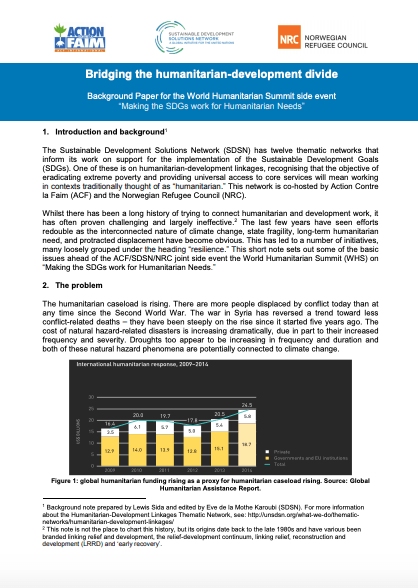
By jay
•
20 May, 2016
The growing humanitarian challenges and their implications for long-term sustainable development will be a cross-cutting theme of the World Humanitarian Summit, and are already at the forefront of daily politics in much of the world. This paper frames the key issues around the humanitarian-development divide, in preparation for the SDSN side event“Making the SDGs work for Humanitarian Needs” that will bring together high-level actors from both fields. The paper reviews the opportunities and challenges of linking and integrating the humanitarian and development agendas under the SDGs, and how the SDGs could become the shared framework for both development and humanitarian action.
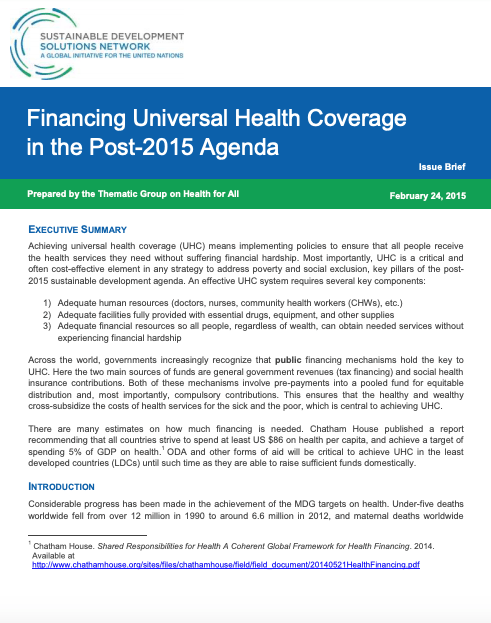
By jay
•
24 Feb, 2015
Achieving universal health coverage (UHC) means implementing policies to ensure that all people receive the health services they need without suffering financial hardship. Most importantly, UHC is a critical and often cost-effective element in any strategy to address poverty and social exclusion, key pillars of the post-2015 sustainable development agenda. Across the world, governments increasingly recognize that public financing mechanisms hold the key to UHC. Here the two main sources of funds are general government revenues (tax financing) and social health insurance contributions. Both of these mechanisms involve pre-payments into a pooled fund for equitable distribution and, most importantly, compulsory contributions. This ensures that the healthy and wealthy cross-subsidize the costs of health services for the sick and the poor, which is central to achieving UHC. There are many estimates on how much financing is needed. ODA and other forms of aid will be critical to achieve UHC in the least developed countries (LDCs) until such time as they are able to raise sufficient funds domestically.
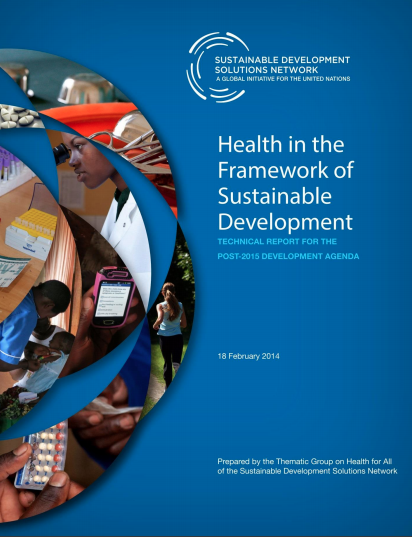
By jay
•
19 Feb, 2014
This report looks at the current state of global health, and priorities for the post-2015 agenda. Health is crucial for sustainable human development, both as an inalienable human right and an essential contributor to the economic growth of society. Health is also a good summative measure of the progress of nations in achieving sustainable development. It contributes to national development through productive employment, reduced expenditure on illness care and greater social cohesion. By promoting good health at all ages, the benefits of development extend across generations. Investments in primary health care can promote health across all social groups and reduce health inequities within and between countries. Improving performance of health systems by enhancing financial and human resources, appropriate use of technology, community empowerment and good governance will advance this agenda. The potential for providing large-scale employment as frontline health workers, particularly to women and young persons, should be utilized to strengthen the economy and improve health services.
SIGN UP FOR SDSN UPDATES
Get our latest insights, opportunities to engage with our networks, and more.
SDSN mobilizes global scientific and technological exertise to promote practical solutions for sustainable development, including the implementation of the Sustainable Development Goals (SGDs) and the Paris Climate Agreement.
Paris
19 rue Bergère
75009 Paris
France
+33 (0) 1 84 86 06 60
New York
475 Riverside Drive
Suite 530
New York NY 10115 USA
+1 (212) 870-3920
Kuala Lumpur
Sunway University
Sunway City Kuala Lumpur
5 Jalan Universiti
Selangor 47500
Malaysia
+60 (3) 7491-8622
Designed by
Northeast Kingdom Online. Powered by
NEKO|360.

